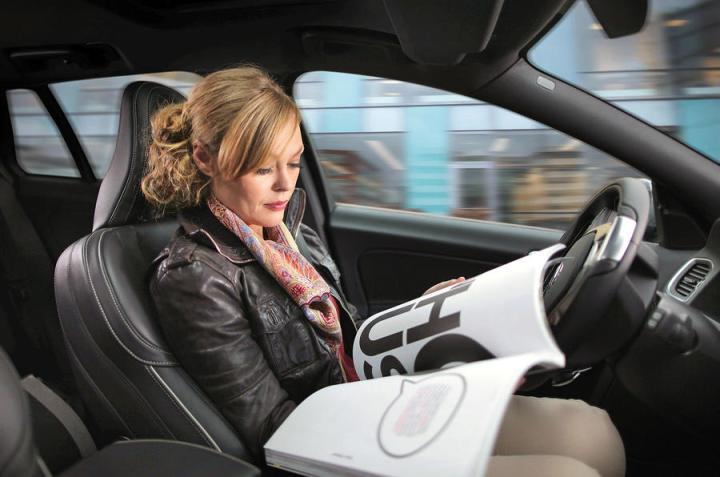
One factor in Volvo’s positioning is the belief that its customers aren’t interested in totally abdicating driving responsibility. “We have no ambition to have a car that could drive in urban environments from A to B,” said Samuelsson. “If you’re a normal consumer, is that really what you are dreaming about? We believe more that in a situation where it’s not really fun to drive, you can switch on the autopilot and then sit back and do something else, using that time more productively. That is the product we are developing.”
Volvo recently published the results of a worldwide survey on consumer attitudes about self-driving cars with 50,000 participants. One result that may be shaping the company’s current stance was that 72 percent of the people surveyed wanted to “preserve the art of driving.”
Earlier this year a senior Volvo engineer criticized Tesla’s Autopilot for, as the engineer characterized it, giving the impression that it functions at a higher level than it actually does. For Volvo cars, the goal is that when an autonomous mode is engaged, people will be able to fully concentrate on something else — they won’t be required to be ready to grab the wheel, although they will be seated in the driver’s seat.
On the position of responsibility, CEO Samuelsson stated that by 2020, no one will be killed or seriously injured in a new Volvo. Volvo will begin testing its Intellisafe Autopilot system in Sweden, London, and several cities in China in 2017 but does not intend to release the system in production cars until the system is fully proven.
So when Volvo says it doesn’t want to build fully autonomous cars, it does not mean no autonomous cars. It intends to build cars that can drive themselves with full responsibility when drivers choose to engage the function on highways, in commuter traffic, or in other boring and tiresome situations. In all cases, however, someone will be in the driver’s seat. There’s no plan for an entirely driverless Volvo.
Samuelsson recently reiterated his statement of corporate responsibility. “If you want to be in that market, you have to take that liability,” he said. “If you’re not ready to do that then you must do something else. Volvo would not market something you can switch on and then relax if it’s not a redundant system which is absolutely safe and secure.”
Editors' Recommendations
- Waymo robotaxi attacked and set on fire in San Francisco
- Cruise woes prompt production halt of fully driverless van
- Dubai Police to deploy driverless patrol cars with AI smarts
- Cruise autonomous vehicle drives over woman just after she was hit by another car
- Cruise says it’s nearing approval for mass production of futuristic robotaxi



